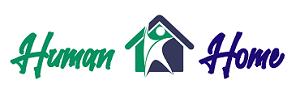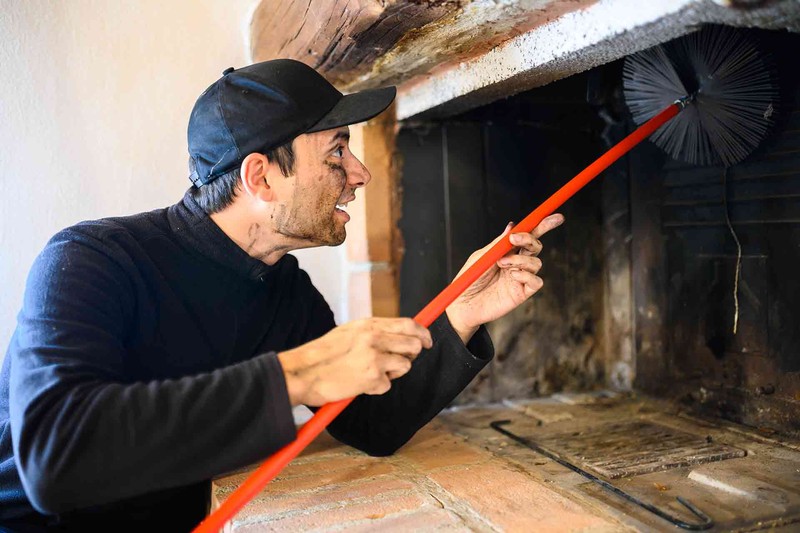Regular chimney sweeping is essential for maintaining a safe and efficient fireplace or heating system. Over time, creosote, a highly flammable substance, builds up in the chimney, increasing the risk of fires. Neglecting chimney maintenance can lead to costly repairs and potentially dangerous situations. Professional chimney sweeping services offer thorough cleaning, inspection, and maintenance, ensuring that your chimney operates safely and efficiently.
Neglecting chimney maintenance can lead to costly repairs and potentially dangerous situations. Creosote buildup in the chimney can ignite and cause chimney fires, posing a significant risk to your home and family. Regular chimney sweeping helps prevent these hazards by removing creosote and other debris, ensuring your chimney functions correctly and safely.
Professional chimney sweeping services offer thorough cleaning, inspection, and maintenance, ensuring that your chimney operates safely and efficiently. These services are performed by trained professionals who use specialized tools and equipment to remove creosote, soot, and other debris from your chimney. Additionally, chimney sweeping can help identify and address potential issues before they become costly problems, saving you time and money in the long run.
Understanding Chimney Sweeping
The Process of Chimney Sweeping
Chimney sweeping is a vital maintenance task that involves removing soot, creosote, and debris from the chimney to ensure proper ventilation and prevent chimney fires. Professional chimney sweeps typically use specialized brushes and vacuum equipment to clean the interior walls of the chimney thoroughly. The process also involves inspecting the chimney for any signs of damage or blockages that could pose a safety hazard.
Tools and Equipment Used in Chimney Sweeping
Chimney sweeps use a variety of tools and equipment to clean chimneys effectively. These tools include chimney brushes of various sizes, chimney rods to extend the brush’s reach, and a vacuum to collect the soot and debris. Other equipment may include a mirror, a flashlight for inspecting the chimney’s interior, and protective gear such as gloves and goggles.
Frequency and Timing Recommendations for Chimney Sweeping
The frequency of chimney sweeping depends on several factors, including the type of fuel used, the amount of use, and the condition of the chimney. Generally, it is recommended to have your chimney swept at least once a year for wood-burning fireplaces and stoves and every two years for gas fireplaces. However, if you notice any signs of a chimney problem, such as smoke backing up into the house or a strong odor from the fireplace, it is vital to have your chimney swept immediately.
Signs Your Chimney Needs Sweeping
Visual Indicators of Creosote Buildup
One of the most common signs that your chimney needs sweeping is creosote buildup. Creosote is a dark, tar-like substance that accumulates inside the chimney liner as a byproduct of burning wood. If you notice a thick, black coating on the interior walls of your chimney, it’s likely creosote buildup. This buildup not only reduces the efficiency of your fireplace but also poses a serious fire hazard. Regular chimney sweeping is essential to remove creosote buildup and prevent chimney fires.
Unpleasant Smells or Smoke Backups
Another sign that your chimney needs sweeping is the presence of unpleasant odors or smoke backups. If you notice a strong, smoky smell coming from your fireplace, it could indicate a blockage or buildup in the chimney. Similarly, if smoke returns to your home when you use your fireplace, it could be a sign that the chimney needs cleaning. Various factors, including creosote buildup, animal nests, or debris blockages, can cause these issues. Sweeping the chimney can help eliminate these problems and ensure proper ventilation.
Decreased Fireplace Efficiency
If you’ve noticed that your fireplace isn’t burning as efficiently as it used to, it could be a sign that your chimney needs sweeping. A creosote or other debris buildup can restrict airflow and prevent proper combustion, leading to decreased efficiency and increased smoke production. A blocked chimney can also cause smoke to back up into your home, creating a hazardous environment. By regularly sweeping your chimney, you can ensure that it functions efficiently and safely.
DIY vs. Professional Chimney Sweeping
DIY Chimney Sweeping
Doing it yourself can save you money, especially if you own the necessary equipment. It also allows you to schedule the cleaning at your convenience. However, DIY chimney sweeping requires climbing onto the roof and handling potentially hazardous materials, which can be risky for those without experience. Also, improper cleaning can lead to inefficiency or even damage to the chimney.
Professional Chimney Sweeping Services
Hiring a professional chimney sweeping service ensures that experienced technicians thoroughly clean the chimney. Professionals have the right tools and knowledge to detect and address any issues with your chimney. They can also provide valuable advice on chimney maintenance. However, professional services come at a cost, which can vary depending on the extent of the cleaning and the company you choose.
Cost Considerations
The cost of DIY chimney sweeping is primarily the price of the equipment, which can range from simple brushes to more complex vacuum systems. However, you may spend more on repairs if you make a mistake or need to clean the chimney properly. While more expensive upfront, professional chimney sweeping services can prevent costly repairs by identifying and fixing issues early on.
Importance of Certified Chimney Sweeps
Qualifications and Training of Certified Chimney Sweeps
Certified chimney sweep Dallas undergo rigorous training and certification processes to ensure they have the knowledge and skills to inspect and clean chimneys properly. These professionals are well-versed in chimney anatomy, fire safety protocols, and the latest cleaning techniques. By hiring certified chimney sweeps, homeowners can trust that their chimneys are in capable hands, reducing the risk of potential hazards.
Safety Standards and Regulations for Chimney Sweeps
Safety is paramount in chimney maintenance, and certified chimney sweeps adhere to industry authorities’ strict safety standards and regulations. These standards are designed to protect both the Fort Worth chimney sweeps and the homeowner from accidents and ensure that all work is conducted safely and efficiently. By working with certified professionals, homeowners can have peace of mind knowing that their chimneys are being serviced with the utmost care and caution.
Benefits of Hiring Certified Chimney Sweeps
There are numerous benefits to hiring certified chimney sweeps, including enhanced safety, improved chimney performance, and extended chimney lifespan. Certified professionals have the expertise to identify and address potential issues before they escalate into costly repairs, saving homeowners time and money in the long run. Additionally, working with certified chimney sweeps can help homeowners maintain compliance with insurance requirements and local building codes, further safeguarding their investment in their homes.
Preventive Measures for Chimney Maintenance
Importance of Regular Inspections
Regular chimney inspections are essential for maintaining chimney health and preventing potential hazards such as chimney fires and carbon monoxide leaks. During an inspection, certified chimney sweeps thoroughly assess the condition of the chimney, identifying any damage or buildup that may compromise its safety or efficiency. By scheduling regular inspections, homeowners can catch problems early and address them before they escalate into more significant issues, ultimately saving time, money, and potentially lives.
Tips for Keeping Your Chimney Clean Between Sweeps
While professional chimney sweeps are essential for thorough cleanings, homeowners can take proactive steps to keep their chimneys clean between appointments. This includes regularly removing ash and debris from the firebox, using a chimney brush to sweep creosote buildup, and ensuring proper ventilation to prevent moisture accumulation. Additionally, burning only seasoned hardwoods and avoiding using artificial logs or treated wood can help minimize the buildup of harmful residues within the chimney.
Other Maintenance Tasks to Ensure Chimney Safety
In addition to regular cleanings and inspections, homeowners should perform other maintenance tasks to ensure the safety and longevity of their chimneys. This includes installing a chimney cap to prevent debris and animals from entering the flue, repairing any cracks or damage to the chimney structure, and ensuring that the chimney is properly ventilated to prevent the buildup of harmful gases. By staying proactive and addressing any issues promptly, homeowners can enjoy a safe and efficient chimney for years to come.
Common Chimney Repairs and Their Costs
Common Chimney Issues
Chimneys are essential components of many homes, providing a means for smoke and gases to exit safely. However, over time, chimneys can develop various issues due to factors such as weather exposure, age, and lack of maintenance. Common problems include creosote buildup, chimney leaks, and damaged flue liners. If not addressed promptly, these issues can decrease efficiency, safety hazards, and costly repairs.
Cost Estimates for Repairing Different Chimney Problems
The cost of chimney repairs can vary widely depending on the nature and extent of the problem. For example, repairing a damaged flue liner can cost anywhere from $1000 to $3000, while fixing a chimney leak may range from $200 to $1500. The cost of addressing creosote buildup through chimney sweeping Frisco typically falls between $100 and $300. It’s crucial to consult with a professional chimney sweep to accurately assess your chimney’s repair needs and provide an estimate based on your specific situation.
Importance of Timely Repairs to Avoid Costly Damage
Timely chimney repairs are essential to prevent minor issues from escalating into major problems. Ignoring chimney issues can lead to more extensive damage and significantly higher repair costs. For example, a small chimney leak that is left unaddressed can cause water damage to the interior of your home, resulting in costly repairs to your walls, ceilings, and other structures. By addressing chimney issues promptly, you can protect your home and avoid unnecessary expenses.
In conclusion, regular chimney sweeping is essential for maintaining a safe and efficient fireplace or heating system. Neglecting chimney maintenance can lead to costly repairs and potentially dangerous situations. Professional chimney sweeping services offer thorough cleaning, inspection, and maintenance, ensuring that your chimney operates safely and efficiently. By promptly addressing creosote buildup and other issues, homeowners can protect their investment and enjoy a warm, safe home for years to come.
You may also like
-
Design & Function: A Guide to Choosing the Right Style of Glass for Your Office Partitions
-
Useful Tips for Successful Installation of Torch Down Roofing
-
Essential Maintenance and Care Tips for Your Home
-
Mold in HVAC Systems: A Property Manager’s Guide to Professional Cleaning and Prevention
-
The Importance of Quality Control in Assembly Companies

